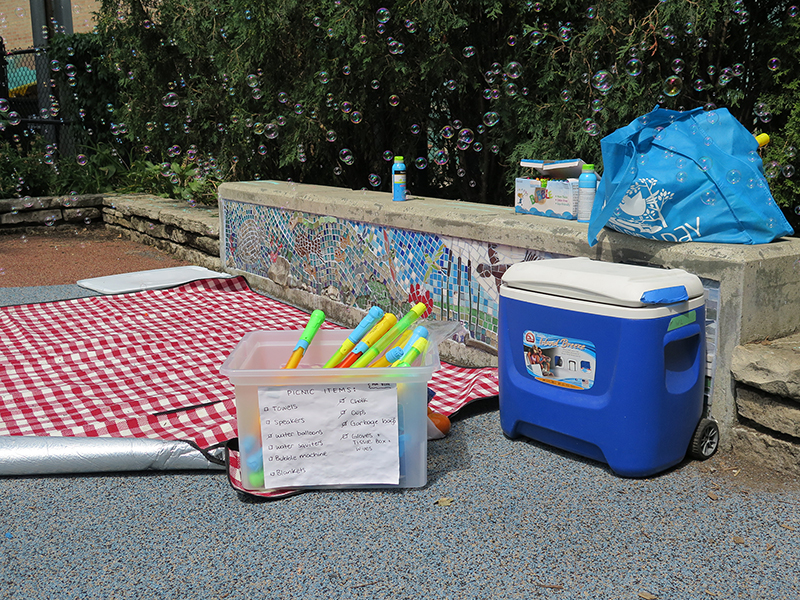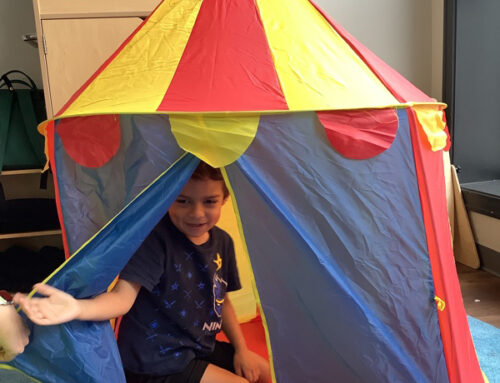For families with neurodiverse children, picnics offer a calming and enriching way to connect with nature. Unlike crowded indoor spaces or bustling restaurants, picnics provide a serene, open environment where learning, bonding, and therapeutic growth happen naturally. The joys of feeling soft grass under their feet or hearing the rustle of leaves can help children practice sensory integration while fostering emotional well-being and family connections.
Here's how picnics can be especially beneficial:
- Sensory Exploration: Children can explore natural textures, sounds, and sights at their own pace.
- Social Growth: Relaxed family interactions encourage communication and build social skills.
- Emotional Regulation: Fresh air and open spaces provide soothing comfort and reduce overstimulation.
- Confidence Building: Positive outdoor experiences help children develop a sense of accomplishment.
- Strengthened Family Bonds: Families enjoy uninterrupted time together, free from indoor distractions.
Time in nature has been shown to reduce anxiety, improve focus, and promote overall well-being, yielding profound benefits for children with autism, ADHD, and other neurological differences. With thoughtful preparation, picnics can become treasured family traditions that inspire growth and togetherness.
Therapeutic Advantages of Picnics
Picnics combine play and nature, offering neurodiverse children therapeutic benefits in a relaxed, supportive setting. These experiences naturally weave sensory, social, and motor skill development into moments of joy and discovery.
Sensory Benefits
The outdoor environment offers countless opportunities for sensory exploration, from the feel of soft leaves to the sound of birds chirping. These natural stimulations can bring comfort to children with sensory sensitivities, helping them adjust to new textures and sounds in a non-threatening way. For example, walking barefoot in grass or watching a butterfly in flight can reduce anxiety and encourage a joyful connection to their surroundings.
Social and Emotional Growth
For many neurodiverse children, traditional social settings can feel overwhelming. Picnics provide a low-pressure space for developing key skills like sharing and turn-taking. Emotional regulation also gets a boost as children learn patience through small, meaningful activities such as waiting their turn to play or helping prepare the food.
Skill Development
Picnics can turn simple tasks into skill-building opportunities. Helping prepare food supports fine motor development, while outdoor play like running or jumping strengthens gross motor skills. Even small achievements, like successfully packing their own lunch, can build confidence and foster independence.
Planning for Success
Thoughtful preparation is key to ensuring a positive picnic experience for families with neurodiverse children. A few adjustments can transform a simple outing into a joyful and supportive adventure.
Choosing the Right Time and Place
Pick a quiet location with shaded areas to provide a calming retreat. Early mornings or late afternoons can minimize overwhelming heat or crowds, making the picnic more enjoyable for children with sensory sensitivities.
Essential Items
Pack wisely with the following items in mind:
- Sensory tools like noise-canceling headphones, fidget toys, or a weighted blanket.
- Sun protection, insect repellent, and a first-aid kit.
- A visual schedule featuring pictures for transitions between activities.
Flexibility and Inclusivity
Build the outing around your child's individual needs:
- Include familiar comfort items to ease any anxieties.
- Prepare allergen-friendly snacks and designate a "quiet zone" where children can decompress.
- Stay flexible—be ready to adapt activities based on your child's comfort levels.
A successful picnic doesn't require perfection. What matters most is creating a peaceful and enjoyable experience together.

Creative Picnic Food Ideas
The right foods can make picnics inviting and manageable for neurodiverse children, especially if sensory preferences or dietary restrictions are involved. Choose options that balance fun and adaptability while promoting healthy eating habits.
Prioritize items with varied but manageable textures. Crunchy vegetables like carrots or apples provide satisfying feedback, while smoother options such as yogurt or cheese cubes suit those who prefer consistency. Fruit skewers, made by threading berries, grapes, and cheese onto sticks, allow children to assist, developing coordination.
Healthy recipe suggestions include pinwheel sandwiches with turkey, cheese, and vegetables rolled in tortillas and sliced into portions. A salad station with separate bowls of ingredients promotes independence. For desserts, frozen grapes offer a refreshing, low-mess treat.
Choose gluten-free crackers, nut-free spreads, and other accommodating options as needed. Invite children to help mix, build, or arrange their meals to make food preparation a therapeutic, skill-building activity.
Simple touches, like adding fun shapes to foods or offering flavored water with cucumber or mint, elevate the dining experience while keeping it stress-free.
Enriching Activities
A picnic is more than just a meal—it's an opportunity for playful connection and discovery. Activities can be customized to meet the developmental and sensory needs of each child.
Relaxed Fun
- A nature scavenger hunt encourages mindful observation.
- Bubble-blowing offers calming, visual stimulation and light physical activity.
Group Games
Interactive games like freeze tag with resting zones or collaborative storytelling can help build social bonds. Gentle mindfulness exercises—like naming the shapes of clouds—promote emotional regulation while deepening the connection to nature.
Art and Sensory Crafts
Engage children with simple creative activities, such as leaf rubbings or building small sculptures with sticks and grass. These hands-on projects naturally encourage tactile exploration and self-expression.
Whether climbing small hills or quietly nestled in the shade, the activities you choose will be fondly remembered as part of the overall picnic experience.
Creating Lasting Memories
For families in Chicago, the city's green spaces provide idyllic settings for neurodiverse-friendly picnics. Here are a few excellent locations to explore together:
- Lincoln Park: Spacious lawns with calm ponds and a nearby zoo.
- Millennium Park: Shaded, wheelchair-accessible areas with stunning views.
- Jackson Park: Serene trails and tranquil gardens.
- Montrose Harbor and Beach: Ideal for lakeside picnics and birdwatching.
- Garfield Park Conservatory: Outdoor gardens that pair beautifully with indoor exhibits.
Planning for weather, crowd levels, and specific challenges will make these destinations even more enjoyable.
By prioritizing your child's unique needs, families can create engaging outdoor experiences filled with relaxation and growth. Celebrate each little success, knowing these shared moments become cherished building blocks for the future.
Picnics can be a source of confidence, discovery, and joy for your neurodiverse child, paving the way for countless "firsts" and strengthening your family bonds. Together, step by step, every picnic can become a enjoyable part of your child's summer.

Blue Bird Day—the first therapeutic preschool and kindergarten program in the nation—fosters socialization, sensory regulation, and pre-academic learning in children ages 2-7 years. Our compassionate therapists practice a relationship-based and family-centered approach, provide parent training, and collaborate on goals and individualized intensive treatment plans for your child.
We believe in a collaborative and multi-disciplinary team approach to therapy. A team of occupational therapists, speech-language pathologists, dietitians, developmental therapists, behavioral therapists, physical therapists, and therapeutic assistants are created for each child to ensure child and family are fully supported and the best possible results are achieved.
Options for individualized, group and virtual therapy sessions are available as well.
Want to learn more or you have a specific question? Feel free to connect with us here!



